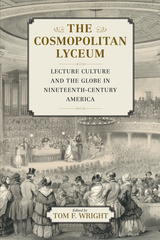Clio's Foot Soldiers
Twentieth-Century U.S. Social Movements and Collective Memory
University of Massachusetts Press
Collective memories are key to social movements. Activists draw on a shared history to build identity, create movement cohesion, and focus political purpose. But what happens when marginalized communities do not find their history in dominant narratives? How do they create a useable past to bind their political communities together and challenge their exclusion?
In Clio's Foot Soldiers, Lara Leigh Kelland investigates these questions by examining 1960s and 1970s social movements comprised of historically marginalized peoples: Civil Rights, Black Power, Women's and Gay Liberation, and American Indian. These movements sought ownership over their narratives to create historical knowledge reflective of their particular experiences. To accomplish their goals, activists generated new forms of adult education, published movement newspapers, and pursued campus activism and speeches, public history efforts and community organizations. Through alternative means, marginalized communities developed their own historical discourses to mobilize members, define movement goals, and become culturally sovereign. In so doing, they provided a basis for achieving political liberation and changed the landscape of liberal cultural institutions.
In Clio's Foot Soldiers, Lara Leigh Kelland investigates these questions by examining 1960s and 1970s social movements comprised of historically marginalized peoples: Civil Rights, Black Power, Women's and Gay Liberation, and American Indian. These movements sought ownership over their narratives to create historical knowledge reflective of their particular experiences. To accomplish their goals, activists generated new forms of adult education, published movement newspapers, and pursued campus activism and speeches, public history efforts and community organizations. Through alternative means, marginalized communities developed their own historical discourses to mobilize members, define movement goals, and become culturally sovereign. In so doing, they provided a basis for achieving political liberation and changed the landscape of liberal cultural institutions.
Clio's Foot Soldiers is an important book that successfully illuminates the importance of collective memory activism in the many different social movements of the 1960s and 1970s.'—Renee C. Romano, author of Racial Reckoning: Prosecuting America's Civil Rights Murders
'This book will contribute significantly to our understanding of the still-improbable victory of so many marginalized groups engaged in 'collective memory' practices.'—Van Gosse, author of The Movements of the New Left, 1950–1975: A Brief History with Documents and Rethinking the New Left: An Interpretative History
'This is an important contribution for understanding our current social and political condition.'—CHOICE
'Clio's Foot Soldiers makes an important contribution to the field of public history by illuminating the broader legacy of proto-public historians engaged in movement activism. The field's commitment [to] community engagement, institutional relevance, shared authority, and civic dialogue resonate deeply with the interests of the grassroots historians Kelland chronicles in her book.'—The Public Historian
'In this original and thought-provoking study, Lara Leigh Kelland examines how U.S. social movements of the left in the 1960s and 1970s created new historical narratives and forms to further their goals of progressive social change . . . This book and its central question—how social movements create a usable past—will be inspiring to scholars of social movements and of public history, as well as to activists and community historians themselves.'—Journal of Arizona History
'Kelland makes a compelling argument for the function of collective histories and activist histories in sustaining identity-based social movements . . . In attending to each movement's process of historical narrative creation, Clio's Foot Soldiers enriches our understanding of the cultural work such movements perform.'—American Literary History
'The strength of Kelland's analysis lies in her ability to include a diverse range of memory practices in her examination of marginalized groups working to construct a vital past for themselves.'—The Journal of American History
'Clio's Foot Soldiers is a book that will teach well, either excerpted as case studies alongside readings on these social movements or in undergraduate and graduate public history and public humanities coursework. The 'memory practices' detailed by Kelland both model and inspire.'—American Historical Review
Lara Leigh Kelland is assistant professor of public and U.S. history at the University of Louisville.











